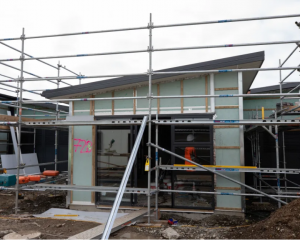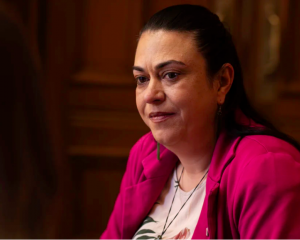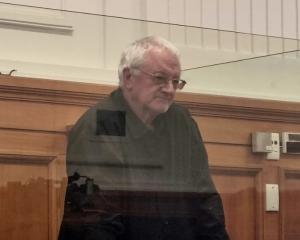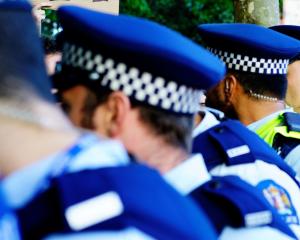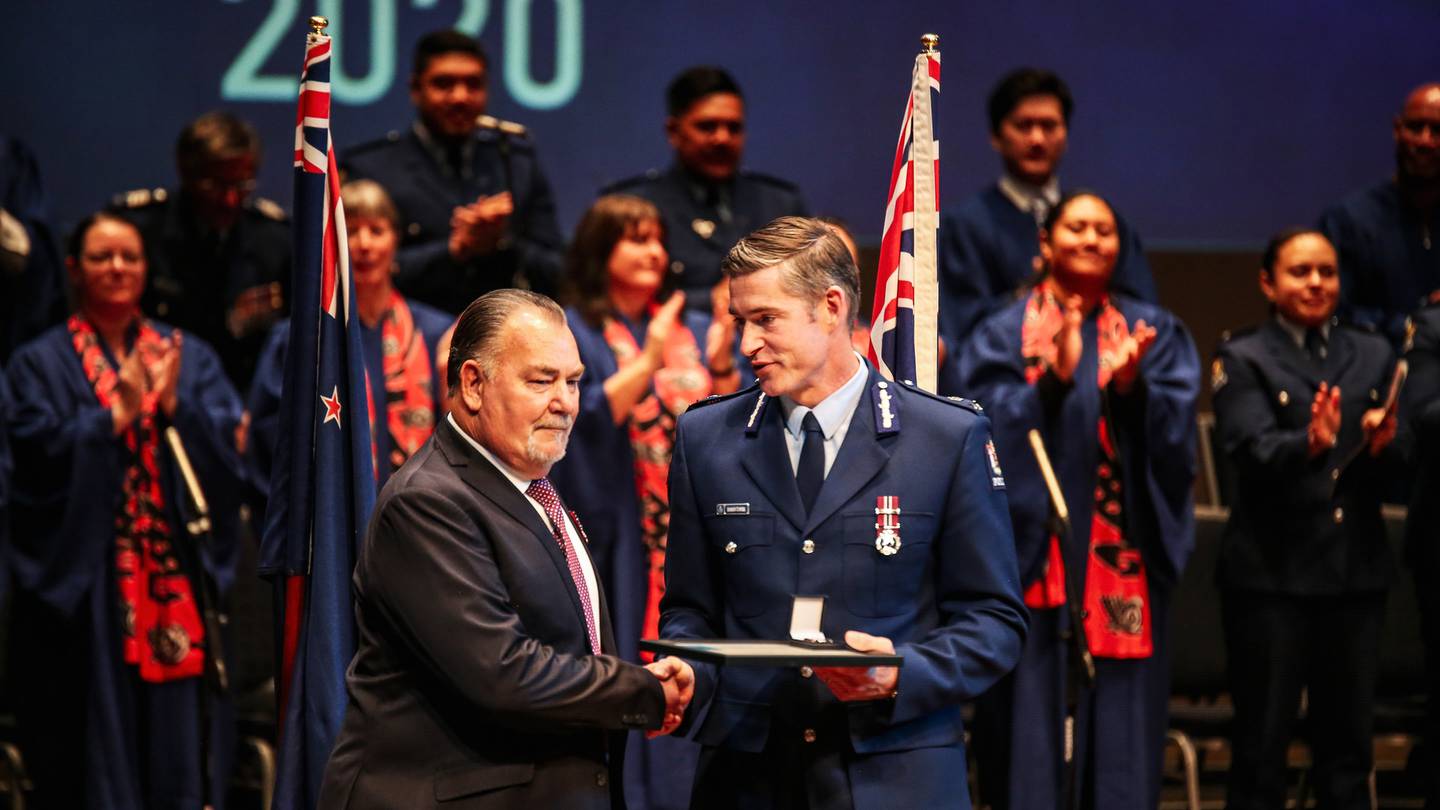
The thrill of the chase had kept Senior Constable Ross Clarke in the tracking and finding game as a police dog handler since 1980.
"His dedication, contribution and commitment leave an outstanding legacy and inspire those who follow in his footsteps," his citation reads, marking the end of a 49-year career in the police.
The leading dog handler was recognised as a "stalwart" in his field who had mentored and coached younger colleagues.
It is easy to say now that Clarke was destined to join the police. His two children – Jessica and Andrew – have also since followed in his steps.
"I think for me the seed was sown way back when I was in shorts and what have you," Clarke said.
"I got caught taking an apple off a tree that didn't belong to me and I got marched home by the local sergeant in Christchurch.
"I was pretty impressed with my first run-in with the law – well my first and only."
His mind remained made up in high school and off he went to Trentham to become a cadet.
Donning the police uniform for the first time could make a person feel a few inches taller, he said.
Back then officers wore neat black serge coats – featuring large silver buttons - and matching trousers. Helmets too in those days, of course, he adds.
"You were proud to wear the uniform."
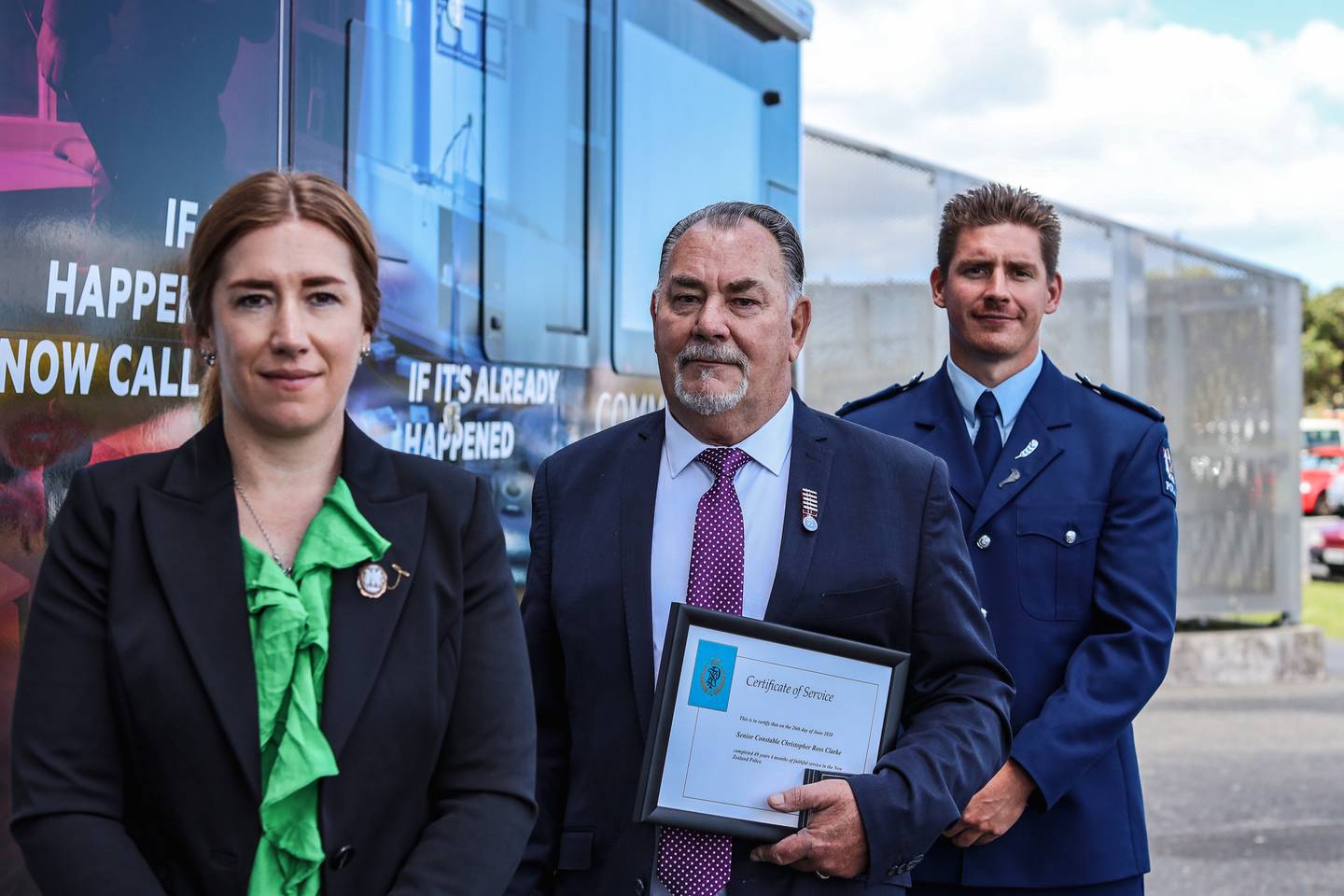
It was seeing tough police officers in action alongside their trained canine counterparts that appealed to him most.
"It was exciting. You were always at the sharp end. I thought this is a bit of me.
"That's what I set out to do. That's what I set out to achieve."
In 1980, an eight-week-old ball of fluff became his first partner. He named the pup Nasa.
"He was a very good tracking dog," Clarke recalls.
Their first catch came after someone reported seeing a burglar on the North Shore, with Clarke and Nasa following a "mile-wide trail" through tell-tale mudflats tracks.
"That was my first catch with the dog."
When Nasa retired to live with good friends of Clarke's the process started all over again.
It would become a lifelong professional passion.
More than a dozen police dogs have worked with Clarke during his career.
"All absolutely different," he recalls fondly.
"To have a blueprint that says 'you train them all this way' - it doesn't work that way. They are just like us. All different with their personalities and the way they do things."
A big German shepherd named Dane was one of the standout police dogs of his career.
Dane had a good temperament around small children but was always immediately ready to go whenever the armed offenders' squad was deployed off on a job, Clarke said.
"Ideal police dog probably. He was a beauty."
Working alongside specialist explosive detector dogs over the years took Clarke behind the scenes of some of the biggest events to grace New Zealand shores including rugby, soccer and cricket world cups as well as royal tours.
Clarke was also a pioneering force in the pilot scheme that introduced police dogs to finding money, working under the umbrella of Customs at the airport.
Away from the airport, it helped police continue to crack down on organised crime.
"It was a good string in the bow to do that."
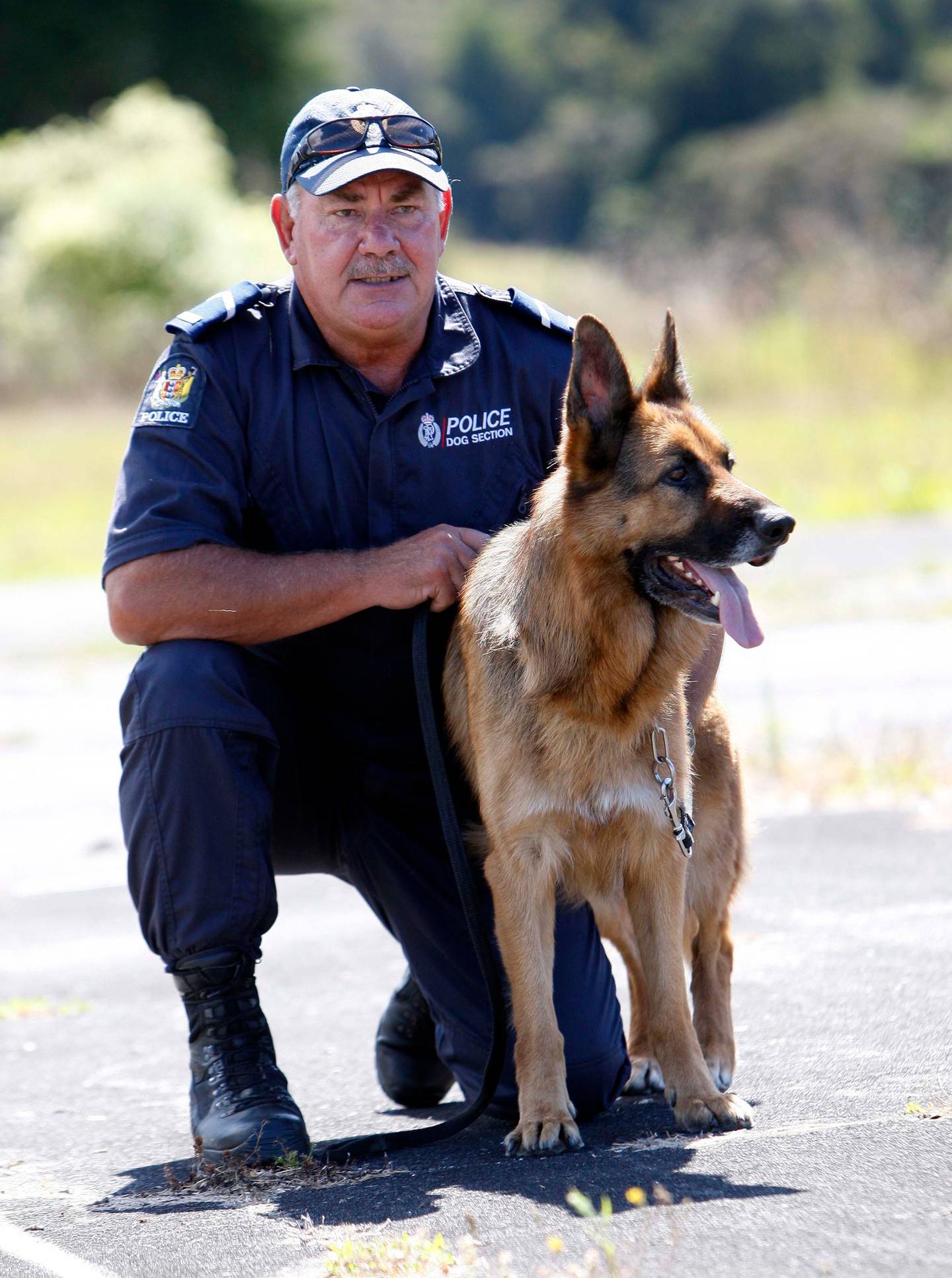
And the police dogs are tested regionally four times a year.
Once a year national trials are held as the very best patrol dogs, drug and explosive detector dogs from across different agencies tackle various search scenarios while trying to avoid planted distractions. The trials are all timed.
"If you are crowned the top dog you are best in the country at what you do," Clarke said.
In 2012 – the same year he lost his wife to cancer – Clarke was picked to go on to the national trials.
His German Shepherd Archie won the top gong in competition.
"You never see policemen cry, but this guy did. A couple of other boys did… knowing I was there so close to losing a loved on.
"And it was pretty damn close.
"Special moment I think. One of those special moments that stayed with me."
He would go on to win again in 2017 with "his little bomb dog"– a black Labrador named Kea taking out the top spot for the explosives detector dog competition in the National Police Patrol and Detector Dog Championships.
Kea will be keeping Clarke company in retirement.







